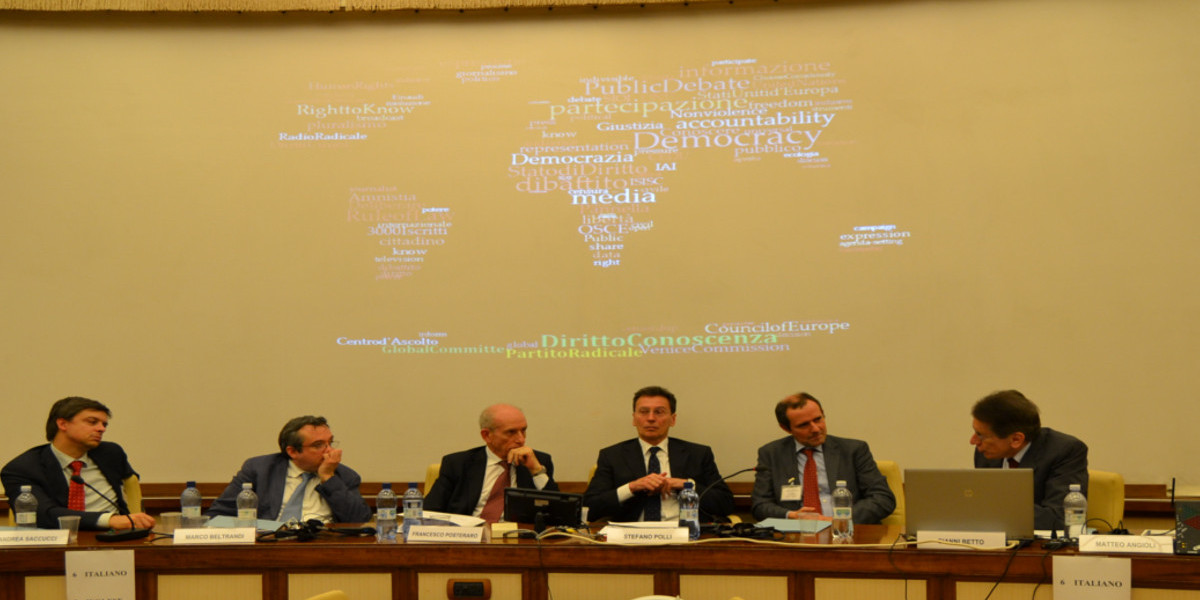On Friday, May 12, in the Defense Committee Room of the Senate of the Republic, in Rome, the Radical Party together with GCRL, Hands Off Cain, the Siracusa International Institute, SIOI and IAI held the conference “Information and Public Debate in XXI Century Consolidated Democracies. Lessons from Italy: What Problems and which Reforms?”.
Politicians, academics and members of the media, as well as representatives from the Venice Commission (Council of Europe), AGCOM (Communications Authority of Italy ) and OSCE took the floor. Progress has been made on the right to know and in particular on the role that public debates and an informed and free public opinion play as essential elements of a consolidated liberal democracy.
Two sessions were held: the first offered an international analysis and the second one focused on the Italian case. After an introduction by the Nonviolent Radical Party Representative to the UN, Laura Harth, the meeting kicked off with the screening of an excerpt from Marco Pannella’s speech given in the same venue in July 2015 and the keynote speaker Ambasssador Giulio Terzi, President of the Global Committee for the Rule of Law.
The meeting followed a previous conference entitled “SOS Rule of Law” held in the Senate on 29 November 2016. It boosted the process for the UN recognition of the universal human right to know and the promotion of a common transition towards the Rule of Law by the Western world together with countries with an Arab-Muslim majority.
All speakers have reaffirmed the will to defend information, which should be given to hte public as freely and as transparent as possible, and the right of citizens to know. Relevant concrete proposals emerged on how to ensure “legal”, correct, free and complete information, as well as how to set minimum international standards that consolidated democracies should abide by. By highlighting the current situation in Italy, the foundations have been laid in order to bring the issue up to all transnational vanues as part of an effort to establish the universal human right to know.
In recent times there has been an increase in conflicts of interest, not only in Italy but throughout Europe, due to an ever closer link between the information industry and the communication industry which affect deceptively communication modes. Journalists often spontaneously opt for a sort of self-censorship, ignoring the peripheries of the world and omitting possible criticisms. This is not just the responsibility of publishers. It goes without saying that the problem cannot be solved through censorship, self-monitoring, or by “official” truths, but only by eliminating the causes that prevent correct, complete and “legal” information.
It has also emerged how, curiously, over the last few years, there has been an increase in communication companies and, at the same time, a decrease of the number of professional journalists. One of the proposals made was therefore a collective elaboration of universal principles through the establishment of an international observatory, composed of relevant security authorities and agencies, institutions and associations. The objective is to define shared rules, ranging from antitrust laws to definition of conflict of interest, the procedures for appointing the monitoring authorities and public bodies to regulating offenses of public opinion.
Watch the meeting on the website of Radio Radicale

